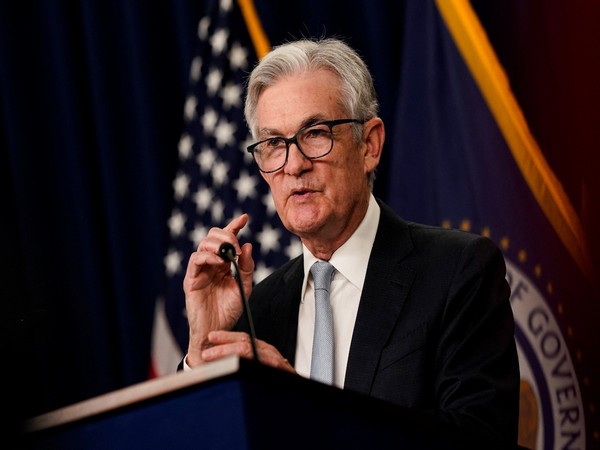"Fed not thinking about rate cuts right now at all": Jerome Powell
Federal Reserve Chairman Jerome Powell dashed any hopes for a rate cut in the near future and said that the central bank is not "at all" thinking of the possibility currently.

- Country:
- United States
Federal Reserve Chairman Jerome Powell dashed any hopes for a rate cut in the near future and said that the central bank is not "at all" thinking of the possibility currently. This comes as the Fed chose to hold off on an interest rate hike for the second straight month.
At the Fed's post-meeting press conference, Powell said the Fed's monetary policy committee "is not thinking about rate cuts right now at all." "We are still very focused on the first question, which is, have we achieved a stance of monetary policy that is sufficiently restrictive to bring inflation down to 2 per cent over time," he said.
The idea of a future interest rate cut doesn't come up in meetings right now, Powell said. The Federal Reserve said it would keep interest rates between 5.25 per cent and 5.5 per cent, and amended language in its post-meeting statement to say that "economic activity expanded at a strong pace in the third quarter." Previously, Fed officials wrote that the economy had grown at a "solid pace."
After the Fed is confident that it has successfully tamped down inflation, Powell said the committee will then have to deliberate how long to keep interest rates elevated before they begin considering rate cuts, according to CNN. Federal Reserve Chair Jerome Powell further said that he likes what he's seeing on the wage growth front: a steady and gradual easing.
"Wage increases have really come down significantly over the course of the last 18 months, where they are substantially closer to a level that would be consistent with 2 per cent inflation over time," CNN quoted Powell as saying. He also noted that a variety of gauges have shown similar trends.
Meanwhile, data released earlier this week showed that the Employment Cost Index, a closely watched measurement of pay and benefits, rose 1.1 per cent during the third quarter from the quarter before, according to the Bureau of Labor Statistics. That's up a touch from the second quarter's 1 per cent growth rate. The latest ECI rose 4.3 per cent on a year-over-year basis, which was down from 4.5 per cent the quarter before and 4.8 per cent in the first quarter, CNN reported.
"If you look back a couple of quarters, it was much higher, came down substantially in June, and then the September reading was more level than the June reading," Powell said. "So, in a way, it was validating and very close to our expectations internally, too". Despite this, wage growth is running at a quicker pace than it did pre-pandemic (from 2015 to 2019, BLS data shows the ECI with an average growth rate of 2.47 per cent), according to CNN.
"In my thinking, it's not the case that wages have been the principal driver of inflation so far," he said. "I do think it is fair to say as we go forward, as monetary policy becomes more important relative to supply-side issues I talked about in the unwinding of the pandemic effects, it may be that the labour market becomes more important over time, too," Powell added. Meanwhile, the US markets soared higher on Wednesday, rebounding after a dismal October and three straight months of losses.
The Dow rose by 221 points, or 0.7 per cent, in Wednesday trading. The S&P 500 hit a session high and was up 1.1 per cent. The tech-heavy Nasdaq Composite was 1.6 per cent higher, according to CNN. (ANI)
(This story has not been edited by Devdiscourse staff and is auto-generated from a syndicated feed.)










